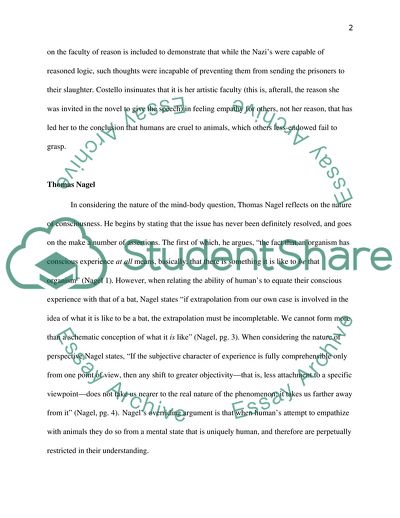Cite this document
(Animals and Humans Essay Example | Topics and Well Written Essays - 1750 words, n.d.)
Animals and Humans Essay Example | Topics and Well Written Essays - 1750 words. https://studentshare.org/philosophy/1734496-philosophy-analysis-on-human-and-animals
Animals and Humans Essay Example | Topics and Well Written Essays - 1750 words. https://studentshare.org/philosophy/1734496-philosophy-analysis-on-human-and-animals
(Animals and Humans Essay Example | Topics and Well Written Essays - 1750 Words)
Animals and Humans Essay Example | Topics and Well Written Essays - 1750 Words. https://studentshare.org/philosophy/1734496-philosophy-analysis-on-human-and-animals.
Animals and Humans Essay Example | Topics and Well Written Essays - 1750 Words. https://studentshare.org/philosophy/1734496-philosophy-analysis-on-human-and-animals.
“Animals and Humans Essay Example | Topics and Well Written Essays - 1750 Words”. https://studentshare.org/philosophy/1734496-philosophy-analysis-on-human-and-animals.


